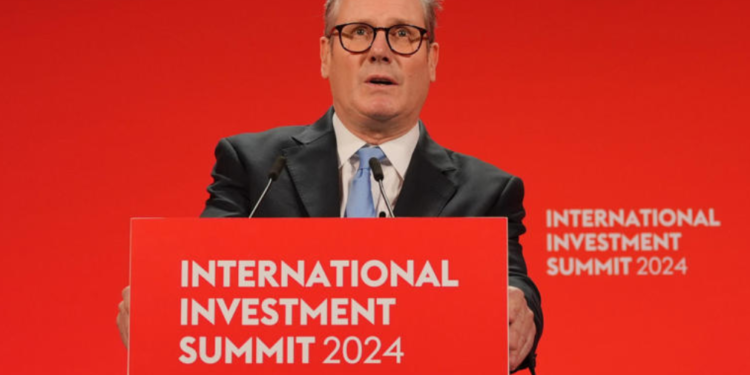Oct 14, 2024 Story by: Editor
The topic of slavery reparations will not be on the agenda for next week’s Commonwealth Heads of Government Meeting (CHOGM), and the UK has no plans to pay reparations, according to a statement from Downing Street.
This position may put Labour leader Keir Starmer, who will be attending the summit in Samoa, at odds with other nations. All three candidates vying to succeed Patricia Scotland as the Commonwealth Secretary-General have voiced their support for reparations for countries affected by slavery and colonization.
When asked about the UK government’s stance on reparations at the summit, Starmer’s spokesperson clarified: “Just to be clear, reparations are not on the agenda for the Commonwealth heads of government meeting. Secondly, the government’s position on this has not changed. We do not pay reparations.” He further added that Starmer’s visit to Samoa would focus on addressing shared challenges and opportunities within the Commonwealth, particularly driving economic growth.
Some institutions in the UK have already taken steps towards addressing their involvement in slavery. The Church of England has pledged to create a £1 billion fund to address its role in the legacy of slavery, while last year, The Guardian apologized for its founders’ involvement in transatlantic slavery and announced a £10 million-plus program of restorative justice.
However, Labour’s stance, which aligns with previous Conservative governments, risks creating tension with some Commonwealth nations ahead of the summit, scheduled to start next Monday. One key item on the summit’s agenda is selecting a new secretary general to replace Scotland, the British peer and former attorney general who has held the position since 2016.
Last month, the candidates seeking to replace Scotland—hailing from the Gambia, Ghana, and Lesotho—expressed support for financial reparations or other forms of “reparative justice” for nations impacted by slavery and colonization. At a debate hosted by Chatham House in London, Ghana’s foreign minister, Shirley Botchwey, remarked that financial reparations were “good,” and whether the Commonwealth plays a role would depend on “the heads of government, who will give the secretary general her marching orders.”
Joshua Setipa, a former trade minister for Lesotho, stated: “I support the idea of reparative justice,” emphasizing the Commonwealth’s history of facilitating discussions on challenging issues. Similarly, the Gambia’s foreign minister, Mamadou Tangara, expressed full support for reparatory justice, adding that “The Commonwealth can use its convening power to facilitate the dialogue and make it happen.”
The UK is facing increasing pressure from both within and abroad to consider the issue of reparations. Last year, the all-party parliamentary group for Afrikan reparations held a conference in London to outline future steps for advancing the cause. In 2018, current Foreign Secretary David Lammy called for reparations to be paid to Caribbean nations. When asked about Lammy’s earlier stance, Science and Innovation Secretary Peter Kyle commented that these remarks were made before Lammy took on his current role, noting: “These are very, very tricky diplomatic challenges that we have as a country because of our legacy. We have to deal with them with all sensitivity.”
The 56-member Commonwealth, largely of former British colonies, evolved from the British Empire, with only four members not previously under British rule. Source: The Guardian

















